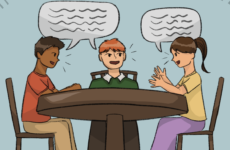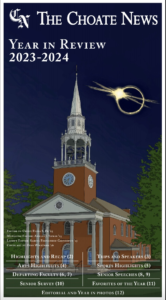“Hey, can I get late lights tonight?” This is what I was asking my prefect at 10:55 p.m. every night fall term. In fact, one of my prefects eventually told me that I didn’t need to ask him anymore because I was doing it so often. My routine after 11:00 p.m. was to switch to cellular data on my phone and try to get as close to the tiny screen as possible to access homework-related documents.
Recently, a proposal to extend Wi-Fi hours for underclassmen was rejected by Student Council. This result indicates that School expects underclassmen to be in bed and have their homework finished by the time the Wi-Fi shuts off at 10:30 p.m. for freshmen and 11:00 p.m. for sophomores — a position that sustains an overly optimistic view of the time needed to complete homework. This argument fails to recognize the flaws with the current policy of lights out for underclassmen. The case for extended underclassmen Wi-Fi hours must be reexamined.
This plan was initially brought up during Student Council meetings because a considerable number of students who ask for late lights frequently are unable to access online resources because they no longer have Wi-Fi access. The increasing use of late lights, both openly and secretly, points to a problem caused by the School’s fundamental belief regarding time management and student workload. While some people believe the lights out and Wi-Fi policies promote better time-management skills, the experience of many sophomores says otherwise. If many students spend freshman year learning time-management skills through strict schedules enforced by house advisers and prefects, why are so many sophomores still getting late lights?
I refuse to believe that the intelligent and hardworking members of the Choate student body are unable to develop time management skills after an entire year of coping with a high school workload with neither parental help nor unlimited Wi-Fi. The only explanation is that students actually need more time to finish their work at night. Since many sophomores have decided to challenge themselves academically by taking numerous higher-level courses and participating in lots of extra-curricular activities, it’s not uncommon that people can’t start doing their homework until after 8:00 p.m. The rules about lights out and Wi-Fi shut-off not only increase the stress on these students but also make them less productive.
Students who don’t have Wi-Fi access — but still need it — have the lone option to use the data plan on their phone. This raises the issue of prejudice against students who can’t afford to pay for cellular data or those who don’t have a hotspot or live in dorms with poor cell reception. These students are unable to use often essential online resources. Even though students can download resources and open websites that they need to use before the Wi-Fi shut-off, there is no guarantee that they won’t need to look up other resources when they are doing homework after lights out. In addition, the Wi-Fi shut-off causes students to rush through their homework, lowering the quality of their work. Students are also prone to staying up late rather than waking up early because they are unsure about whether they would be able to finish their work if they were to wait until the morning to complete assignments. No one wants to wake up early in the morning and realize that they can’t finish all their homework before class begins
As the Wi-Fi policy for underclassmen is tied so closely with the lights out policy, it’s impossible to discuss one policy and not the other. We must keep talking about the rules of lights out and Wi-Fi use to solve these problems.


